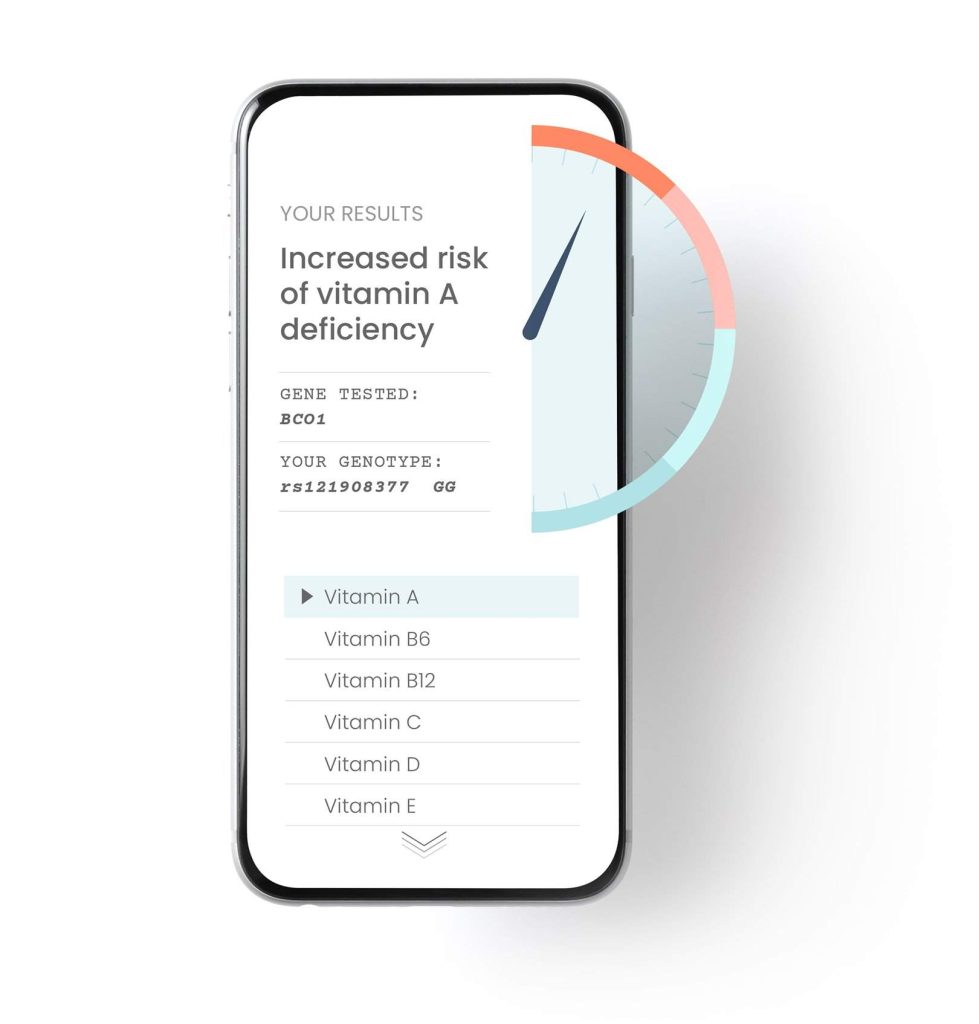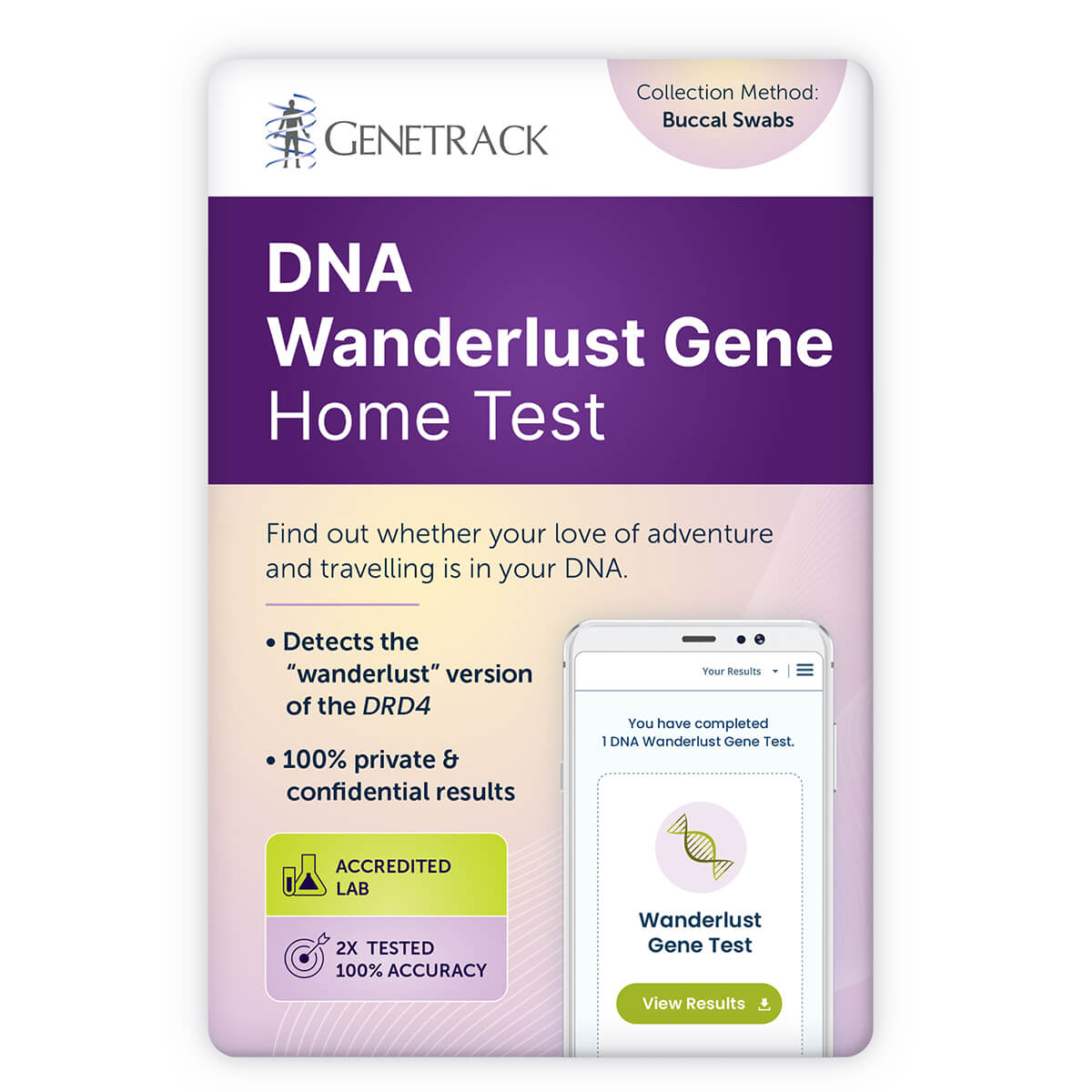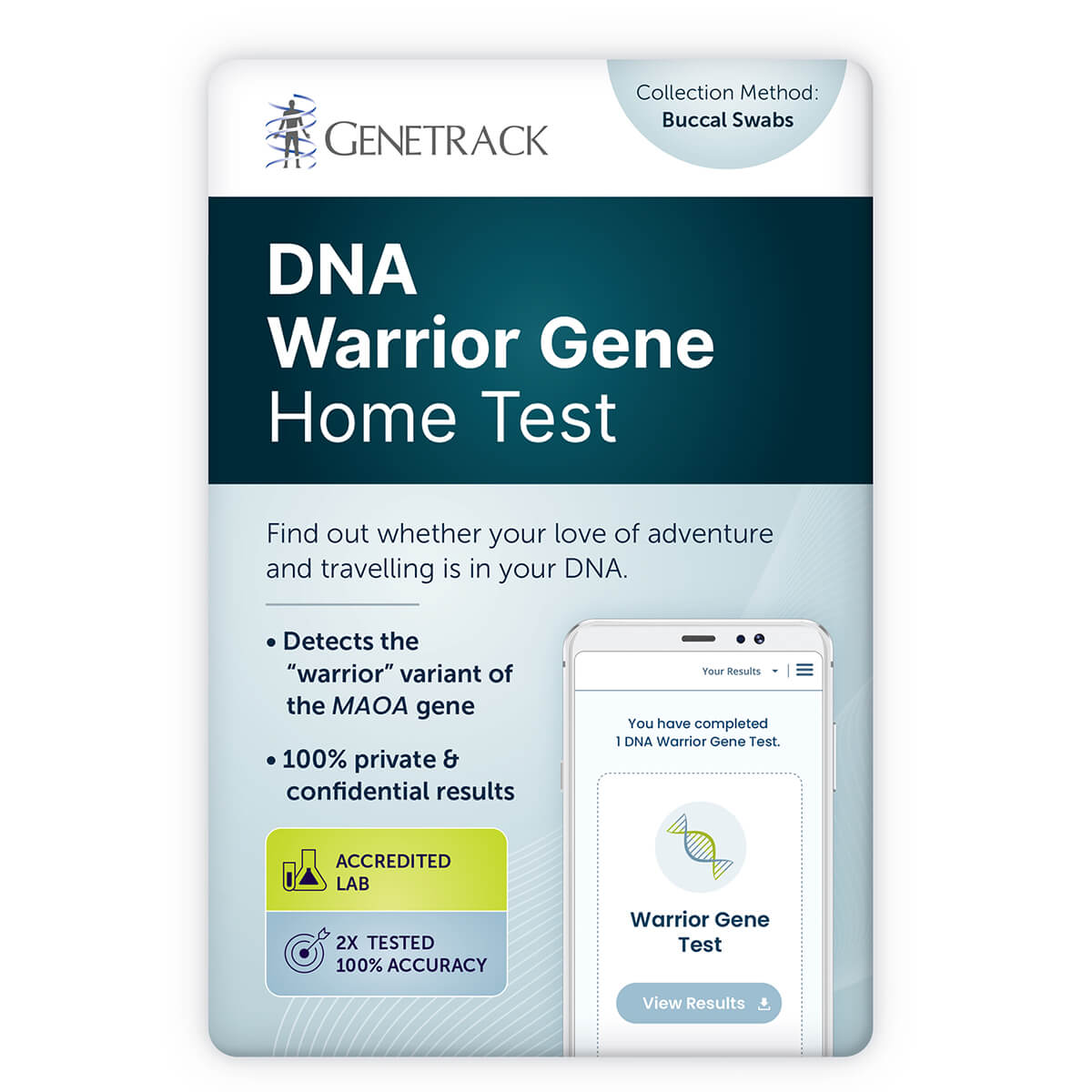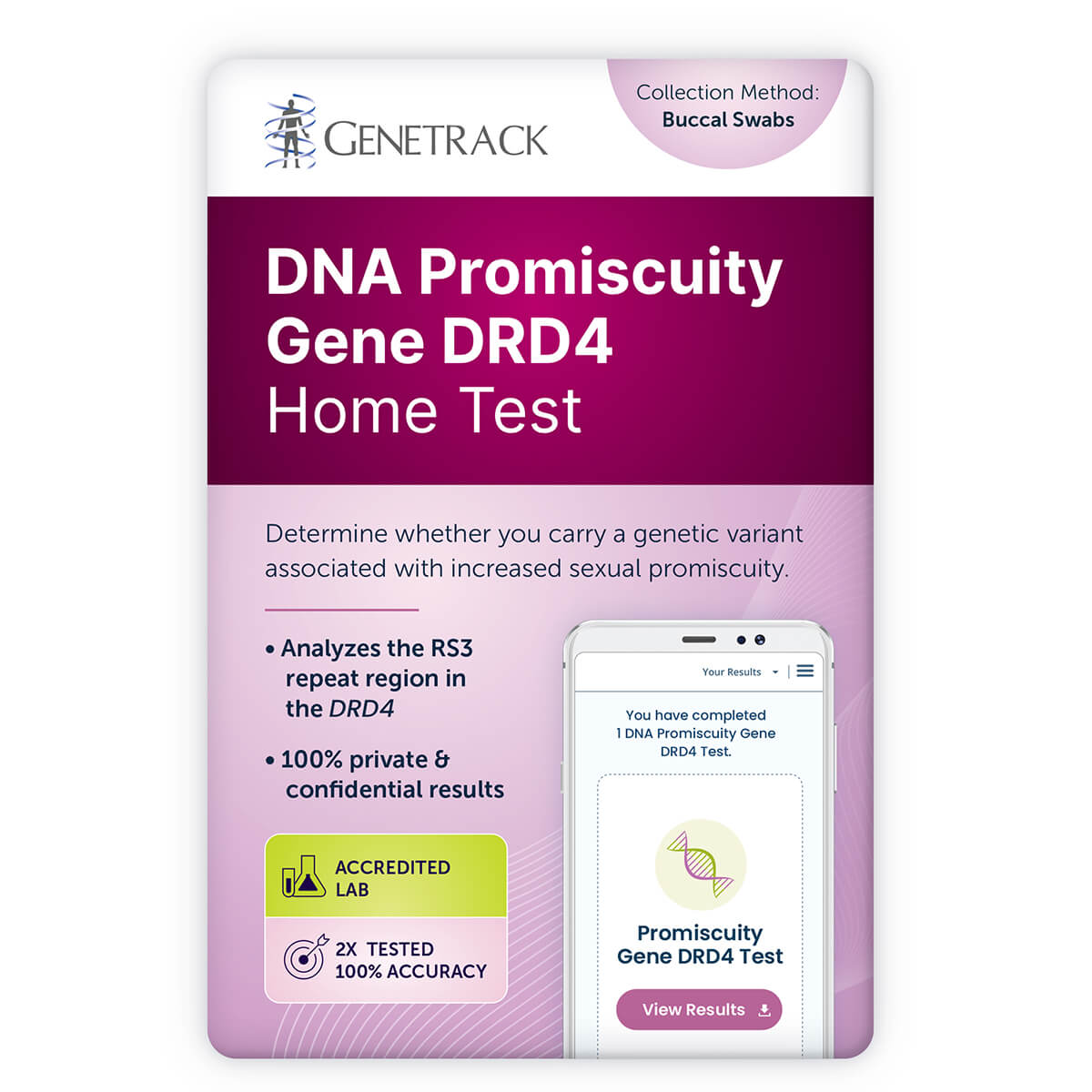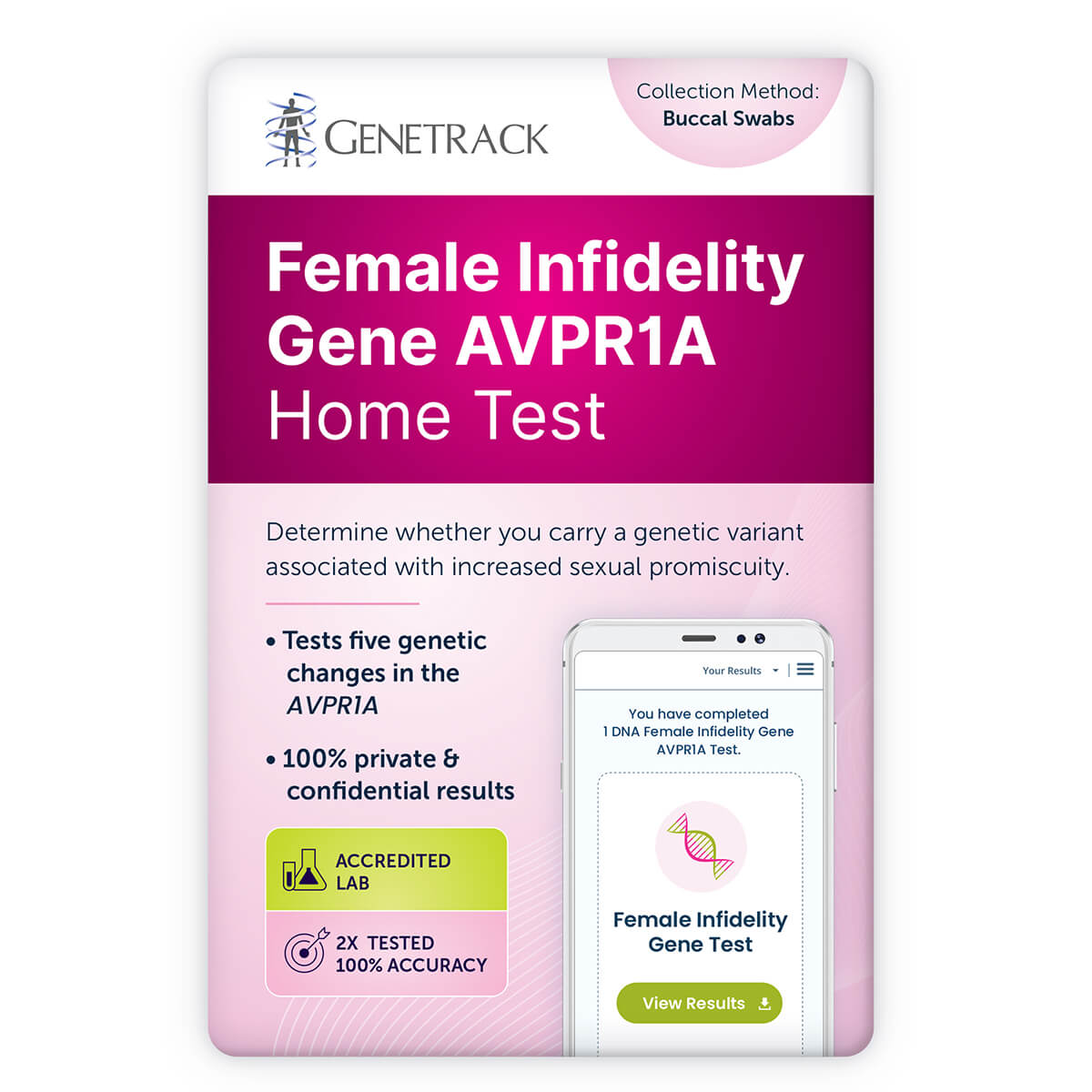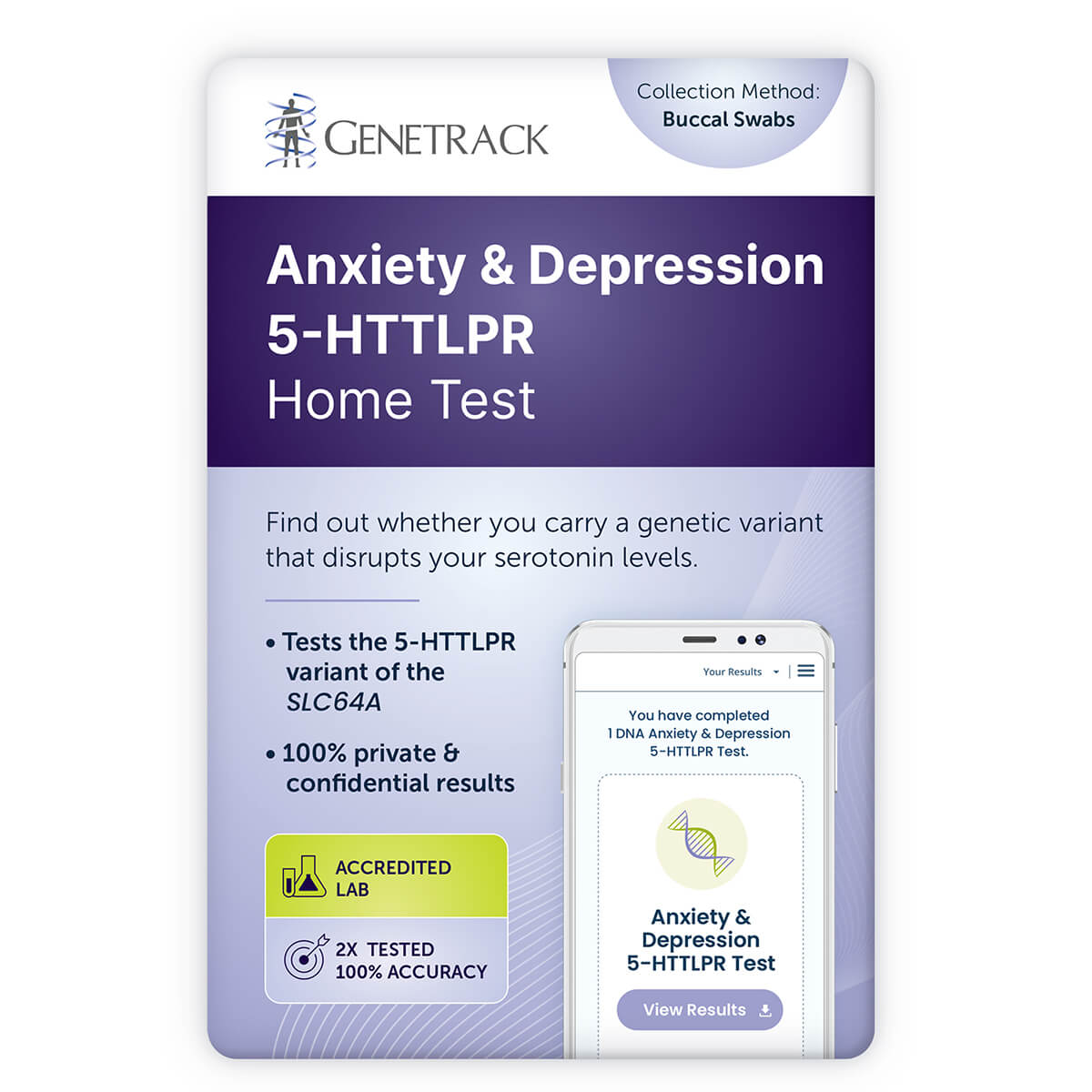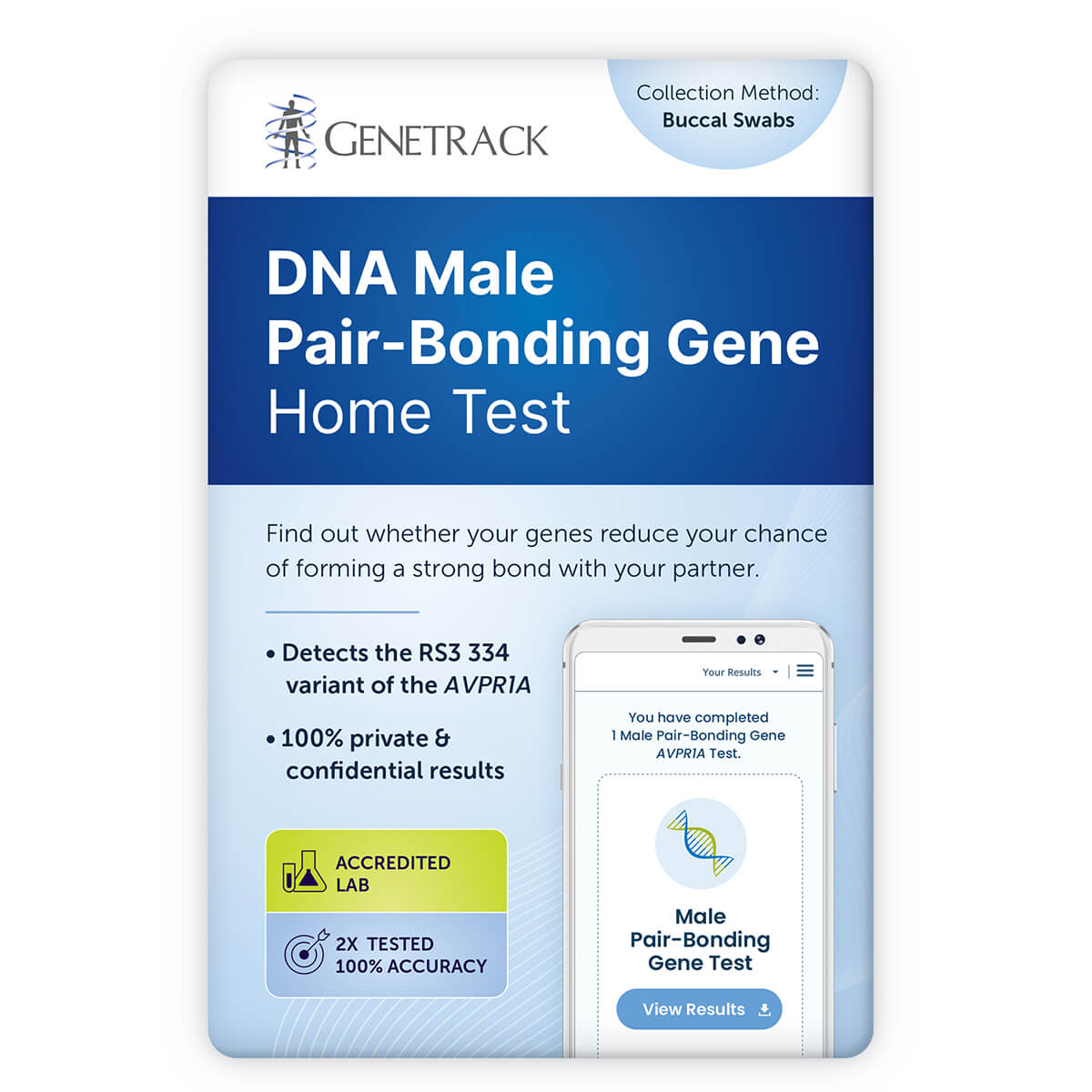Wanderlust Gene Test
Discover if your passion for travel and adventure is in your genes.
Ever felt an irresistible urge to explore new places and dive into adventures? It might be in your DNA. Discover if your passion for travel is encoded in your genes.- Tests for the “wanderlust” variant of the DRD4 gene.
- Those with just one allele of 7 or more repeats (7R+) tend to travel more, embrace risks, explore novel locations, savor new cuisines, and seek diverse experiences.
- Results are completely private and delivered confidentially online.
NT$10,830
AABB, ISO17025 & CLIA accredited lab
What is the “Wanderlust Gene”?
The “wanderlust gene” refers to a variation in the DRD4 gene. This gene controls the dopamine receptor D4 in the brain. The variation involves a repeated sequence of DNA that can occur from 2 to 11 times. People with 7 or more repeats (called 7R+) are more likely to seek new experiences like travel and exploration.
What does the dopamine receptor D4 do?
Dopamine is a vital chemical in the brain, and it’s primarily responsible for our feelings of pleasure and reward. The primary function of the D4 receptor is to bind with dopamine, enabling the transmission of these pleasure signals throughout the brain.
Interestingly, those with 7R+ variants of DRD4 have a receptor that doesn’t bind with dopamine as efficiently as others. As a result, these individuals require a greater amount of dopamine stimulation to achieve the same pleasurable feelings.
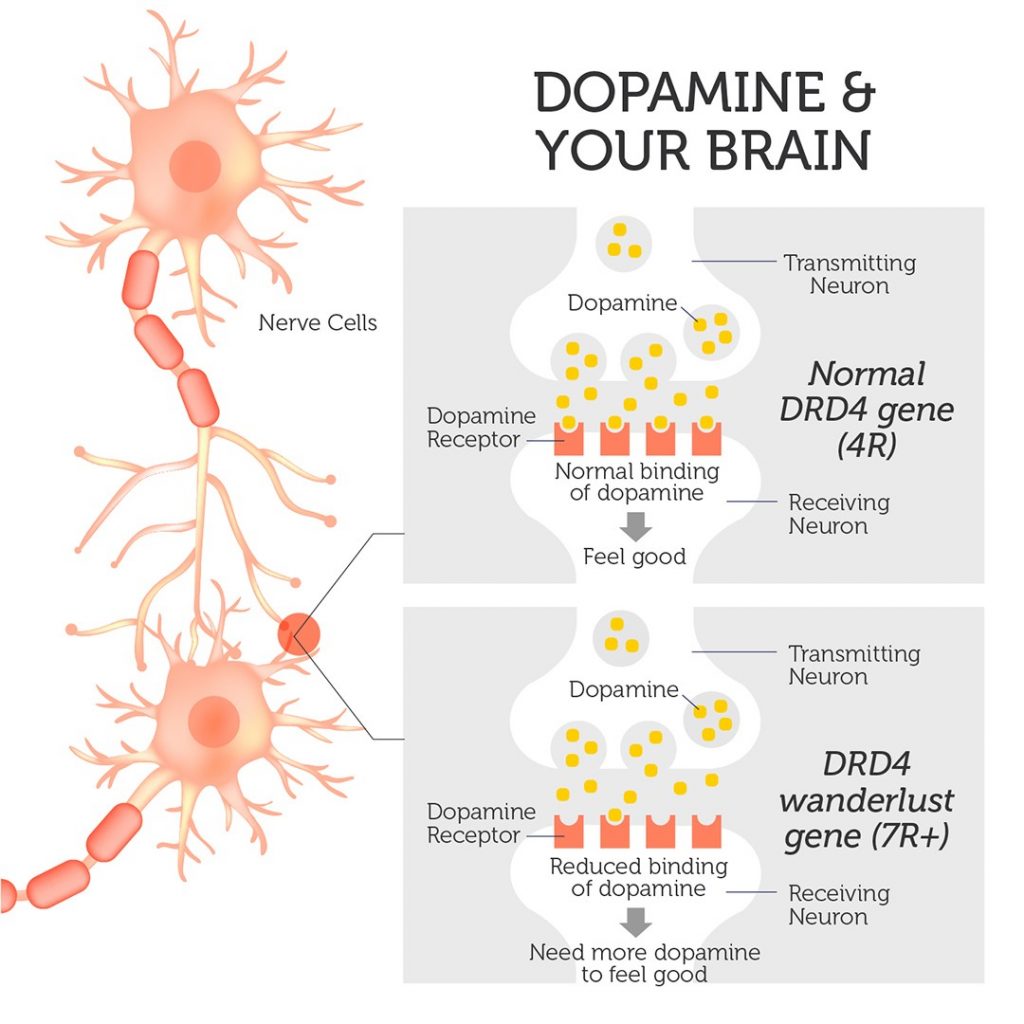
The Genetics
The DRD4 gene is located on chromosome 11. We inherit two copies of the DRD4 gene – one from each parent. This means you can inherit two identical copies (like 3R and 3R) or two different ones (like 3R and 8R).
What does DNA testing show?
This specific DNA test determines the length of the repeat region within the DRD4 gene, detailing the repeat numbers for each allele.
If someone inherits at least one 7R+ allele (including 7R, 8R, 9R, 10R, and 11R), they’re more likely to exhibit tendencies like traveling, exploration, and trying new foods and cultures.
How common are the DRD4 gene variants?
The DRD4 “wanderlust” gene variant is found in roughly 20% of the global population. However, its prevalence differs among ethnic groups. For example, it’s less frequent among individuals from East and South Asia but is more commonly found in the Americas.
Historical Implications of the Gene
This gene offers some intriguing insights into historical and cultural behaviors. For instance, it might provide clues as to why certain cultures, such as the Mayans or Vikings, were more inclined towards exploration and migration. These groups might have had a higher concentration of individuals with the 7R+ variant. Conversely, cultures or communities that predominantly remained in a single location for extended durations may have a reduced number of people with this gene variant.
Furthermore, the inherent characteristics of the “wanderlust gene” — particularly its association with reduced dopamine efficiency — could underpin some of humanity’s great explorations. It offers a fascinating perspective: perhaps the innate human urge to explore and discover is, in part, coded within our DNA.
How Home DNA Testing Works

Order Test Kit
From relationship tests to health tests, we offer a wide range of DNA tests to fit your needs.
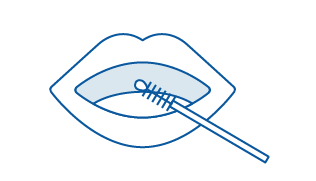
Collect & Ship
Collect your DNA with our painless mouth swabs, then send the samples to our laboratory for analysis

Receive Results
Access your confidential results online the moment testing is completed. Our team of experts is available for any questions.
Electronic Reports Delivery
